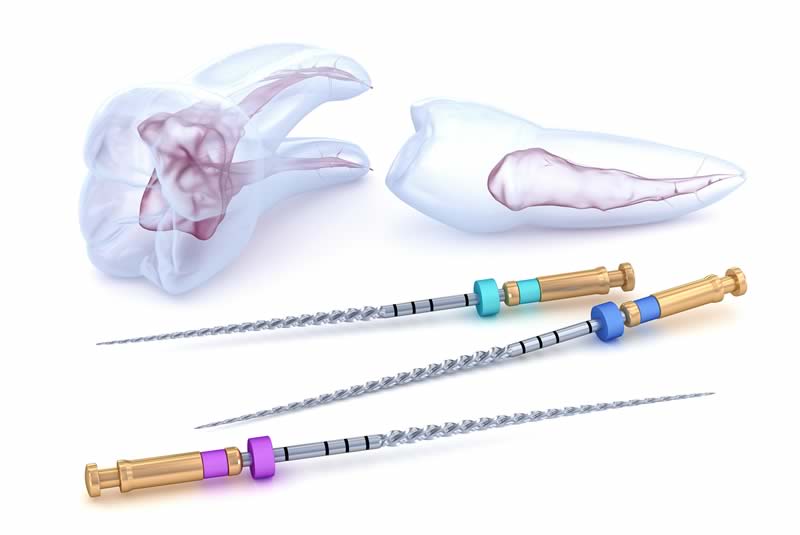
While cosmetic dentistry is on the rise, and for good reasons, the reality is that there will always be a need for general dental care. This involves both preventing problems from arising in the first place, and treating them when they do. Many common dental problems are well known to patients such as decay and breakages, but in today’s blog we are going to look at a problem that our Witham patients may be less familiar with and that is ‘pulpitis’
The most obvious place to start is with the question ‘what is pulpitis’? The answer to that is that it is when the soft pulp deep within our teeth becomes inflamed. This can happen when the tooth suffers trauma, deep tooth decay or from a cracked tooth. Possible symptoms might include pain, sensitivity and a throbbing sensation in the tooth. There are two types of pulpitis, reversible and irreversible and we will look at these now.
Symptoms for the reversible form of this problem are usually, not surprisingly, less severe than the irreversible type. Even so, the discomfort felt means that you are unlikely to ignore it and will give Blake Dental a call to investigate the problem; and so you should. When symptoms occur to this degree, it is extremely unlikely that they will resolve on their own and this is almost certainly the case when it comes to reversible pulpitis.
By contacting us as soon as possible when you experience the symptoms, it might be possible to avoid the need for a root canal procedure, while delaying things will increase its likelihood. To treat it, we have to address the cause of the inflammation. In most cases, this is likely to involve the removal of infected tooth material and filling and possibly restoring the tooth with a crown. This will not always be the case though and acting quickly might just save the need for a root canal procedure, the most likely next step.
As you can probably imagine from the above; when the problem reaches this stage, there are almost certainly only two options left. One is to extract the tooth, an option that we rarely recommend where saving it is also a possibility. With irreversible pulpitis, the only treatment that can save the tooth and remove the painful symptoms is to perform a root canal procedure.
We know that when this is mentioned, some patients may become anxious due to the reputation that this procedure has gained over the years. We will look at the why and hows of this in another blog but for now, please accept that this procedure should cause no more discomfort than most other invasive procedures, especially given that a powerful local anaesthetic is used during the treatment.
Let us take a look at what you can expect from this procedure and how it can restore your affected tooth to a functional state.
As mentioned, the first step is to numb the area as this makes it much more comfortable for the patient and easier for the dentist to do his/her job. Once this has taken effect, a section will be removed from the top of the tooth to allow the dentist to access the infected soft pulp material deep within the root canals of the tooth. The infected pulp material will then be removed and the hollow tooth thoroughly cleaned to remove any remaining bacteria. The hollow root canals are then filled using gutta percha, a special filling material largely only used for this purpose. This enables the root canals to be thoroughly sealed to help prevent any reinfection.
In the vast majority of cases, the treated tooth will then be capped with a crown. This not only completes the treatment but also helps to restore the appearance of the tooth and provides it with additional strength.
As the nerves of the tooth are located within the pulp, anyone who has this procedure should take care when eating. You may not be able to judge how hard you are biting down due to the lack of nerves, and, especially if you eat something hard, you could, potentially, damage the tooth. We generally recommend that you use the tooth for softer and easy to bite foods only. Once you have become used to doing this, you will find that your restored tooth will perform its role efficiently and certainly better than a missing tooth. If we can save the tooth, you will also save on additional fees, for example, the cost of a dental implant to replace it.
As we always say, if you have any oral care issues at all, even if it seems minor, please do contact us for advice. Our receptionists will be able to offer initial advice and may book you an appointment to see one of the dentists at our Witham practice. Remember that if you delay seeing us when you suspect something is wrong, you might not only experience pain or discomfort but could also miss the window of opportunity when a tooth could be saved and restored.
If you would like to see a dentist at Blake Dental, please give us a call to arrange an appointment on 01376 501688. We are here to help.
Design by Dental Media
Katie Annabel Blake trading as Blake Dental is an Introducer Appointed Representative of Financing First Limited, which is authorised and regulated by the Financial Conduct Authority. Katie Annabel Blake is a credit broker, not a lender. The provider of a payment scheme which is not offered through or by Financing First Limited may not be so authorised and regulated.